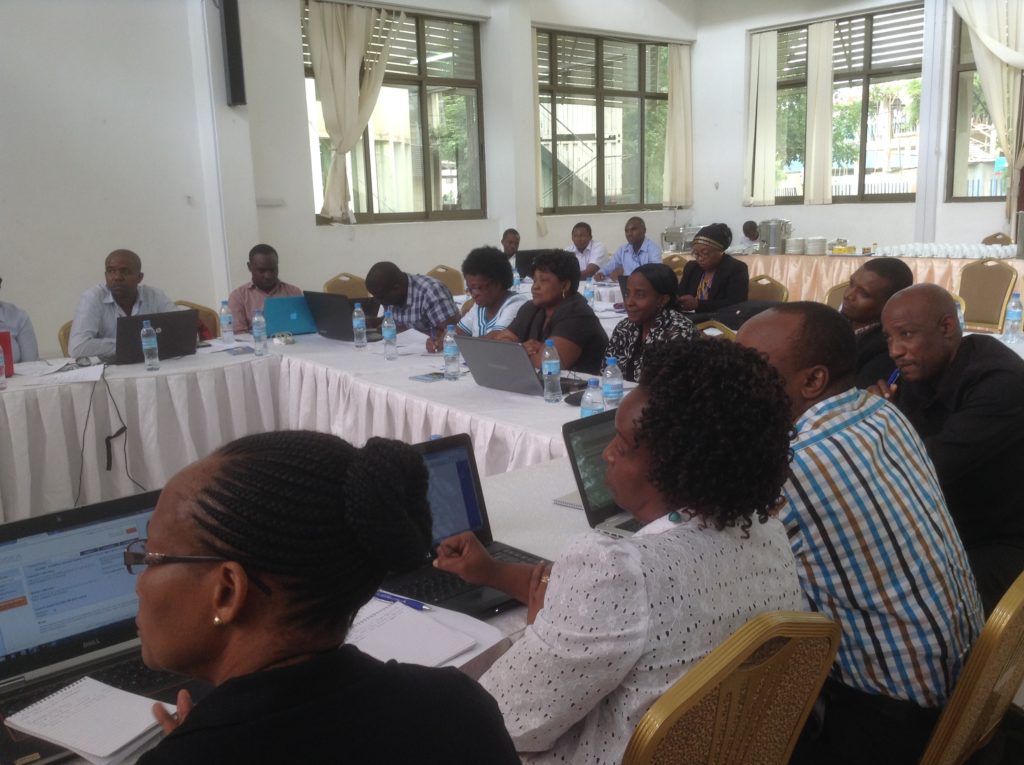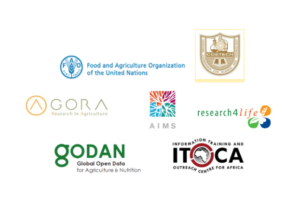Tanzania workshop on Access to Global Online Research in Agriculture (AGORA), May 24-25 2016
 The Food and Agriculture Organization of the United Nations (FAO of the UN) in conjunction with several partners is organizing a series of training workshops across Asia and Africa focused on access to research in agriculture and fisheries. Last month workshops were held in Namibia and Myanmar. Now a similar workshop is set to take place at Tanzania’s Commission for Science and Technology (COSTECH) May 24-25 2016.
The Food and Agriculture Organization of the United Nations (FAO of the UN) in conjunction with several partners is organizing a series of training workshops across Asia and Africa focused on access to research in agriculture and fisheries. Last month workshops were held in Namibia and Myanmar. Now a similar workshop is set to take place at Tanzania’s Commission for Science and Technology (COSTECH) May 24-25 2016.
 Tailored to researchers the workshops are aimed at drawing attention to the scope of free online agricultural information available on Access to Global Online Research in Agriculture (AGORA) and AGRIS (International System for Agricultural Science and Technology) and in effectively using these resources.
Tailored to researchers the workshops are aimed at drawing attention to the scope of free online agricultural information available on Access to Global Online Research in Agriculture (AGORA) and AGRIS (International System for Agricultural Science and Technology) and in effectively using these resources.
Alongside this core focus, the workshops raise awareness of key trends in scientific publishing in agriculture, fisheries and forestry, with a look at the further range of resources available to researchers in agricultural research.
Background
Being able to access timely agricultural information and understanding how to get the best out of research is a key issue, particularly in Tanzania. It is the fastest growing economy in the East African community and over the past decade has made stellar progress in sustaining economic growth, with the amount of people living in “basic needs poverty” falling 34.4% in 2006, to 28.2% by 2012, according to a World Bank poverty assessment.
However, this relative domestic stability hasn’t translated into economic growth for many Tanzanians. The country remains one of the poorest countries in Sub Saharan Africa, with up 12 million people living in poverty, 10 million of them in rural areas. A 2014 UN Tanzania Human Development (THD) Report suggests that economic growth alone is not enough to make a difference.
Agriculture is seen as one of the country’s top priorities in reducing poverty. The sector employs around three quarters of Tanzania’s workforce and accounts for around a quarter of the country’s GDP. Separately, a FAO report describes fisheries as a huge source of untapped potential.
Meanwhile, Arica’s research output is booming – ResearchTrends reported that African authors nearly doubled their research share over the past decade. More research than ever is available. But mentoring researchers in Tanzania to locate and use agricultural information and raising awareness of free and low cost platforms like AGORA and AGRIS has the potential to make a big impact on agricultural productivity.
Workshop: approach
While there are a huge amount of research resources on AGORA and AGRIS, making effective searches on both platforms requires know-how, and the idea is for the workshop to train researchers to get the best out of the two programs so that they can share this knowledge back in their institutions.
The workshops provide an overview of both databases, with guidance on searching through the range of free and low-cost research materials and training on some of the new trends and challenges in open science, open access and open data in agriculture. As well as an overview of intellectual and copyright a further section of the workshop looks at existing tools for accessing information to agricultural research, including Google Scholar, Google Books, Aquatic Commons, PubAg, and TEEAL.
Day two of the workshop features a special panel session, which is yet to be confirmed.
AGORA, AGRIS, Research4Life
Research4Life is the collective name for the four programmes – HINARI, AGORA, OARE and ARDI – that provides low-income countries with free or low cost access to academic and professional peer-reviewed content online.
The goal of Research4Life is to reduce the knowledge gap between high-income countries and low- and middle-income countries by providing affordable access to critical scientific research.
Set up by the Food and Agriculture Organization (FAO of the UN) together with major publishers (Elsevier has provided over a quarter of the content), AGORA provides low-income countries with access to an outstanding digital library in the fields of food, agriculture, environmental science and related social sciences, with a collection of over 6,000 journals and 5,800 books in over 100 countries.
AGRIS is a FAO-maintained global public database providing bibliographic information on agricultural science and technology. Like AGORA its chief goal is to improve access to and the exchange of agricultural information in low-income countries. Over 150 institutions from 65 countries contribute to the AGRIS network and alongside search results AGRIS links to other sources on the web, further enriching knowledge.
Organizers
FAO is organizing the workshop in conjunction with GODAN, ITOCA, COSTECH, AIMS, AGORA and Research4Life
Sources
UN Human Development Report 2015





